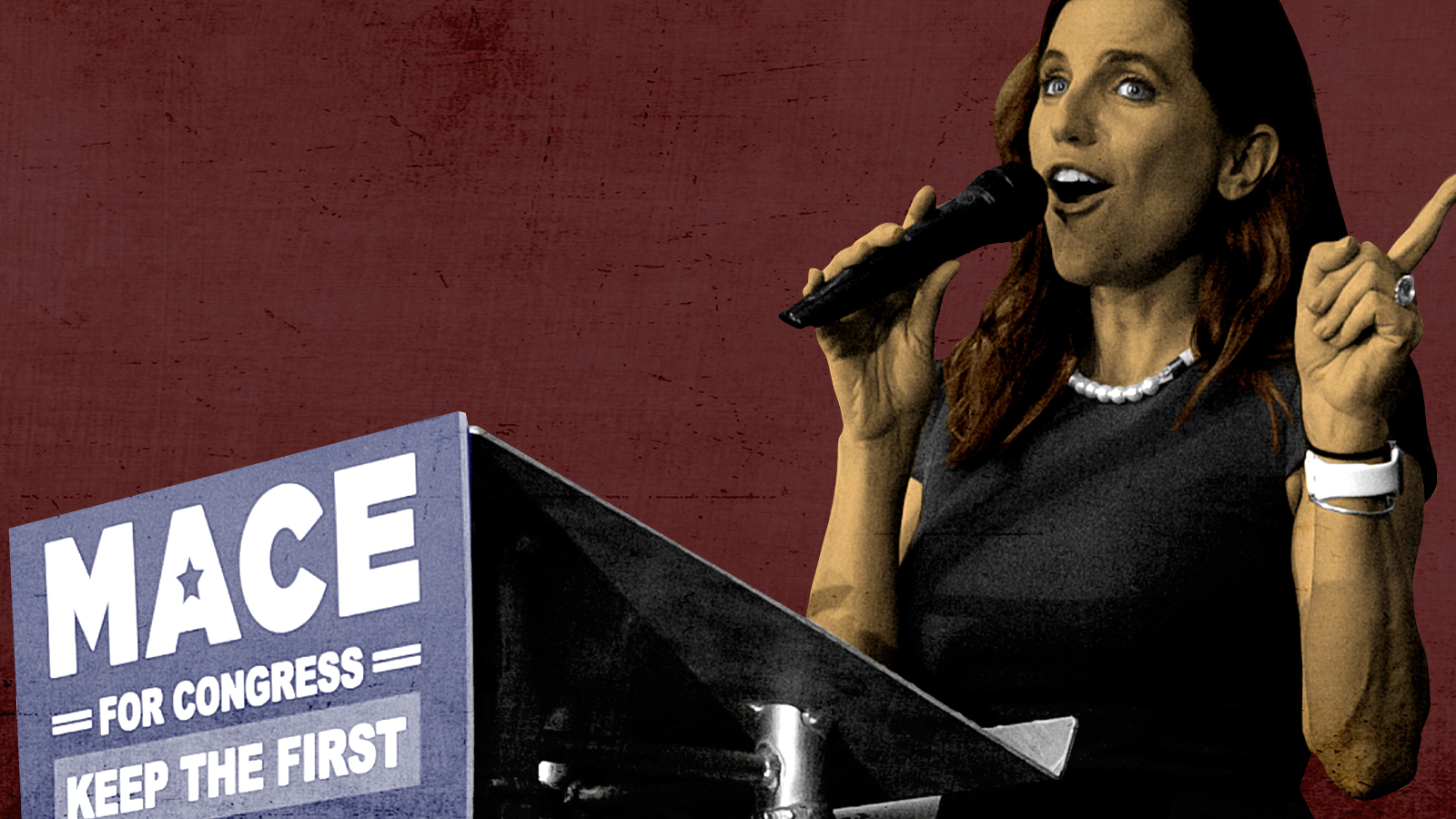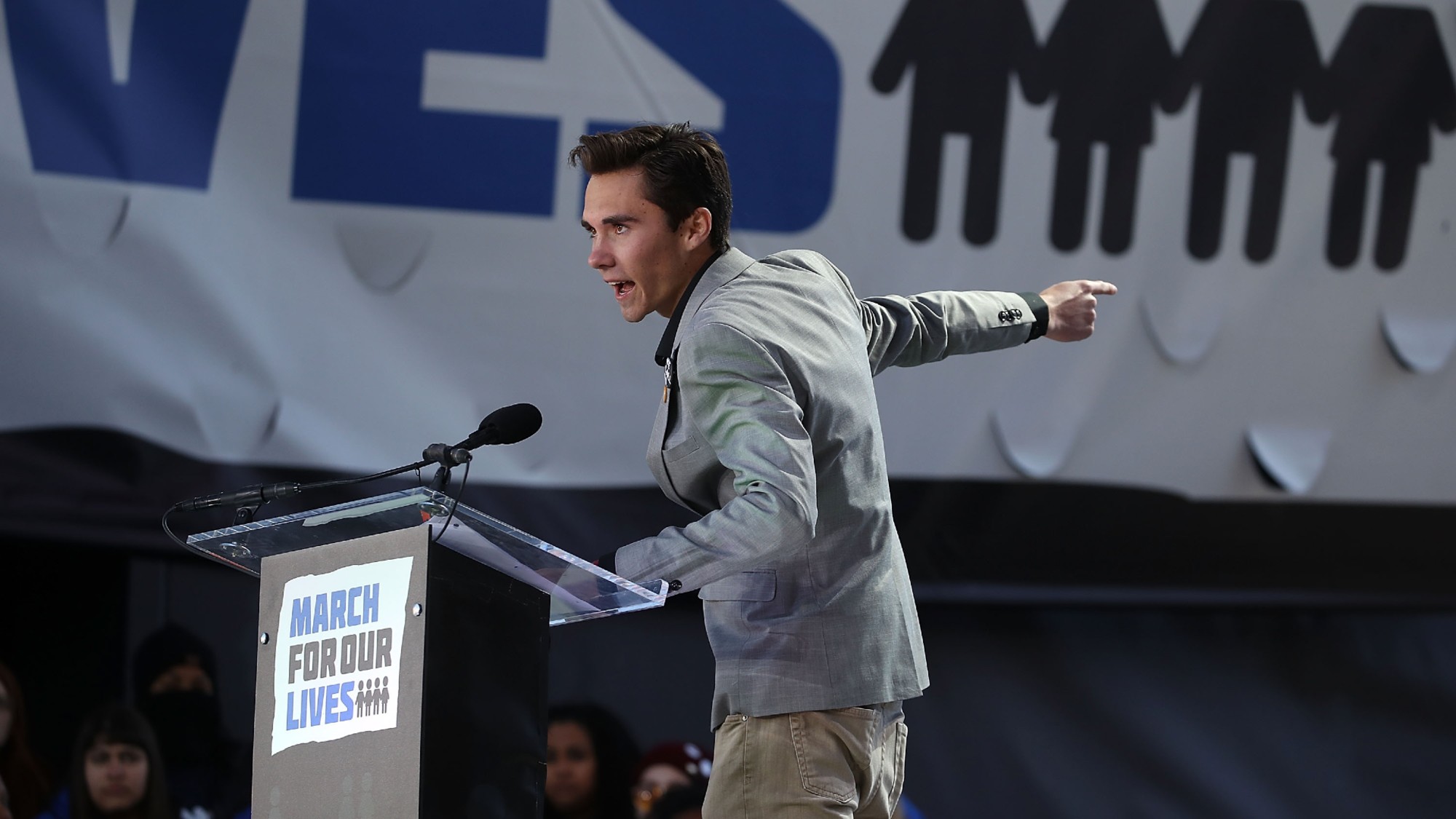What we learned from the races in South Carolina, Nevada, Maine, North Dakota, and Texas
Tuesday's elections shed new light on evolving fault lines in both parties


A free daily email with the biggest news stories of the day – and the best features from TheWeek.com
You are now subscribed
Your newsletter sign-up was successful
Voters went to the polls for primary elections in four states on Tuesday (South Carolina, Nevada, Maine, and North Dakota) as well as for a much-watched special election in Texas. While there were few surprises in Maine and North Dakota, races elsewhere had major implications for both parties.
What factions were vying for control of these seats, how did they do and what are the implications for November's midterm elections and beyond? Here's everything you need to know about what happened last night:
How is Trump's quest for vengeance going?
Many analyses of today's Republican Party depict a struggle between old-guard conservatives like Rep. Liz Cheney (R-Wy.) and on-the-march MAGA troops like Sen. Josh Hawley (R-Mo.). But that framing largely misses the real battle. For the most part, the former president has vanquished Reagan Republicans in the policy world, as even candidates who are more moderate are forced to take a hard line on immigration, trade, and China, such as Mehmet Oz, the GOP nominee for Senate in Pennsylvania. Few serious candidates are willing even to challenge Trump's conspiracy theory about the 2020 election, meaning the demonstrably false lie is now fully in the party's mainstream. The battles raging are personal rather than ideological, and they are about fealty to Trump and whether younger blood can pry loose one or two of his fingers off the grip he currently holds over the party.
The Week
Escape your echo chamber. Get the facts behind the news, plus analysis from multiple perspectives.

Sign up for The Week's Free Newsletters
From our morning news briefing to a weekly Good News Newsletter, get the best of The Week delivered directly to your inbox.
From our morning news briefing to a weekly Good News Newsletter, get the best of The Week delivered directly to your inbox.
This feud is going less well for the president than his ideological remaking of the party. In Georgia, his pet candidates for governor and secretary of state got trounced even though there was hardly any issue daylight between any of them. And on Tuesday, the backing of Trump's machine was insufficient for Katie Arrington to pick off South Carolina Rep. Nancy Mace, who had criticized the former president's conduct during the Jan. 6 insurrection but voted against impeachment. Mace, who had the enthusiastic backing of former South Carolina Gov. and onetime Trump ally Nikki Haley, won by nearly 8 points.
However, fellow Palmetto State Rep. Tom Rice, who cast one of the 10 House GOP votes in favor of impeachment in 2021, lost overwhelmingly to State Rep. Russell Fry, 51 percent to 25 percent. This suggests the red line for GOP primary voters might be the impeach vote, rather than temporarily straying from the flock.
What are the fault lines in the Democratic Party?
The action in Democratic primaries is the same as it has been since 2016, with candidates backed by progressive groups and Sen. Bernie Sanders squaring off against establishment candidates. In Nevada, that progressive challenge fell far short, as former Sanders campaign co-chair Amy Vilela lost to incumbent Rep. Dina Titus by almost 65 points. Nevertheless, the party's determination to openly back every incumbent against threats from the left, even those who are out of touch with the new center of ideological gravity, is puzzling. While the Democrats' gerontocratic leadership clearly blames progressives for its sagging polls and the incipient wipeout in the midterms, it is quite a difficult critique to sustain. Voter anger is much more about sky-high inflation, persistent COVID problems, and a spike in some violent crimes than it is about anything the progressive left has done lately. The idea that voters are rebelling against defunding the police — a two-year-old activist slogan from the summer of 2020 that was never meaningfully implemented anywhere — strains credibility.
One place that elites clearly should be panicking is the party's standing with Latino voters, a bedrock constituency for Democrats. The slippage in support from this core group in 2020 could be dismissed as a one-off problem, but continued erosion in Democrats' numbers with Latinos would be a red-alert situation. That's why the special election in Texas' 34th Congressional District was so closely watched. Along with Miami-Dade County in Florida, the South Texas region was ground zero for some of the more shocking Democratic failures in 2020 and helped keep the Lone Star state red despite ongoing Democratic gains in metro areas like Dallas-Ft. Worth and Houston.
A free daily email with the biggest news stories of the day – and the best features from TheWeek.com
Because of redistricting, this seat will be deep blue in November, but in its current incarnation it is a district that Biden carried by only 4 points. Republicans recruited a terrific candidate in Mayra Flores, and she beat Democrat Dan Sanchez by 8 points. A less heralded failure here is party leadership's inability to talk the outgoing incumbent, Filemon Vela, out of the mind-boggling decision to quit Congress in March and take a job at a lobbying firm. Not only do Democrats now have an even narrower majority in the House, but Vela basically granted Republicans a free kick under the national spotlight.
What are the general election implications?
Democrats probably view their chances at holding onto either chamber of Congress as a long shot at this point. But they do see kooky Republican candidates as one possible way that they might be able to hold or even enlarge their Senate majority. The fact that GOP primary voters, for example, forwarded the obviously unwell Herschel Walker, a former NFL star with Trump's seal of approval, means that they aren't terribly invested in the underlying quality of the nominees.
But most of the buzziest races last night were not for competitive seats, and where the competition will be fierce, as in the races for Nevada governor and the state's Senate seat currently held by Democrat Catherine Cortez-Masto, the GOP winners were more traditionally mainstream. However, the newly-minted Republican nominee for Senate, former Attorney General Adam Laxalt, led Trump's efforts to overturn Nevada's election results in 2020, and Secretary of State nominee Jim Marchant is an enthusiastic proponent of the Big Lie. The gubernatorial nominee, Jim Lombardo, while not openly backing Trump's conspiracy, also hasn't distanced himself from it. That means in Nevada, democracy itself will be on the ballot this November.
David Faris is a professor of political science at Roosevelt University and the author of "It's Time to Fight Dirty: How Democrats Can Build a Lasting Majority in American Politics." He's a frequent contributor to Newsweek and Slate, and his work has appeared in The Washington Post, The New Republic and The Nation, among others.
-
 The Olympic timekeepers keeping the Games on track
The Olympic timekeepers keeping the Games on trackUnder the Radar Swiss watchmaking giant Omega has been at the finish line of every Olympic Games for nearly 100 years
-
 Will increasing tensions with Iran boil over into war?
Will increasing tensions with Iran boil over into war?Today’s Big Question President Donald Trump has recently been threatening the country
-
 Corruption: The spy sheikh and the president
Corruption: The spy sheikh and the presidentFeature Trump is at the center of another scandal
-
 The billionaires’ wealth tax: a catastrophe for California?
The billionaires’ wealth tax: a catastrophe for California?Talking Point Peter Thiel and Larry Page preparing to change state residency
-
 Bari Weiss’ ‘60 Minutes’ scandal is about more than one report
Bari Weiss’ ‘60 Minutes’ scandal is about more than one reportIN THE SPOTLIGHT By blocking an approved segment on a controversial prison holding US deportees in El Salvador, the editor-in-chief of CBS News has become the main story
-
 Has Zohran Mamdani shown the Democrats how to win again?
Has Zohran Mamdani shown the Democrats how to win again?Today’s Big Question New York City mayoral election touted as victory for left-wing populists but moderate centrist wins elsewhere present more complex path for Democratic Party
-
 Millions turn out for anti-Trump ‘No Kings’ rallies
Millions turn out for anti-Trump ‘No Kings’ ralliesSpeed Read An estimated 7 million people participated, 2 million more than at the first ‘No Kings’ protest in June
-
 Ghislaine Maxwell: angling for a Trump pardon
Ghislaine Maxwell: angling for a Trump pardonTalking Point Convicted sex trafficker's testimony could shed new light on president's links to Jeffrey Epstein
-
 The last words and final moments of 40 presidents
The last words and final moments of 40 presidentsThe Explainer Some are eloquent quotes worthy of the holders of the highest office in the nation, and others... aren't
-
 David Hogg challenges Democrats' 'ineffective' old guard
David Hogg challenges Democrats' 'ineffective' old guardTalking Points He plans to fund primary challenges to Democratic incumbents
-
 The JFK files: the truth at last?
The JFK files: the truth at last?In The Spotlight More than 64,000 previously classified documents relating the 1963 assassination of John F. Kennedy have been released by the Trump administration
